Space
Sign up for our newsletter
We summarize the week's scientific breakthroughs every Thursday.
-
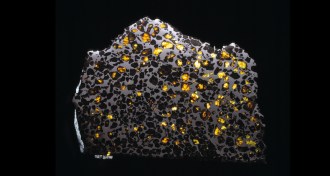 Planetary Science
Planetary ScienceYoung asteroids generated long-lasting magnetism
Pockets of iron and nickel in meteorites suggest that asteroids in the early solar system produced magnetic fields for much longer than once thought.
-
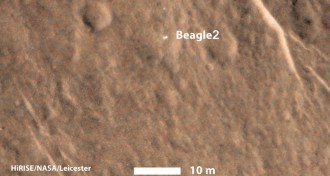 Planetary Science
Planetary ScienceMars orbiter locates lost Beagle 2 lander
The Beagle 2 lander, missing since 2003, has been found on the surface of the Red Planet in images from the Mars Reconnaissance Orbiter.
-
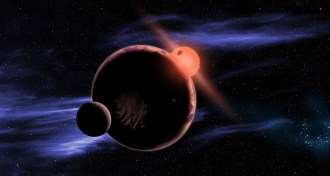 Astronomy
AstronomyRocky planets around cool stars may have Earthlike climates
Small, rocky planets that sit close to cool stars might be able to keep spinning, creating conditions hospitable to life.
-
 Astronomy
AstronomyLarge rocky planets excel at ocean building
Rocky planets a few times as massive as Earth may build deeper oceans – and sustain them for longer – than smaller worlds.
-
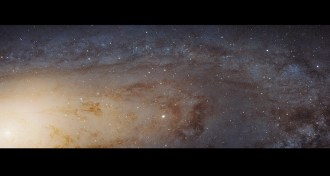 Astronomy
AstronomyHubble telescope captures panorama of Andromeda galaxy
The Hubble Space Telescope captured a panoramic mosaic of the closest spiral galaxy to the Milky Way, mapping the light from over 100 million stars.
-
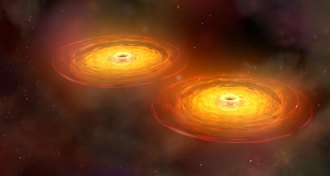 Astronomy
AstronomyPair of black holes prepare to take the plunge
A pair of supermassive black holes in a distant galaxy will likely collide in the next million years.
-
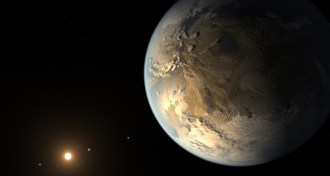 Astronomy
AstronomyKepler telescope discovers another 554 possible planets
Extra year of Kepler telescope data adds 554 possible planets and eight confirmed ones that might be able to host life.
-
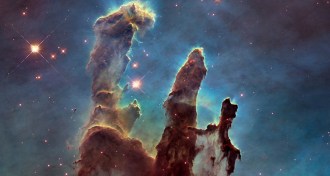 Astronomy
AstronomyHubble telescope snaps new images of iconic stellar nursery
Hubble's new view of the Pillars of Creation, a star-forming region in the Milky Way, hints at how the nebula has changed over the last 20 years.
-
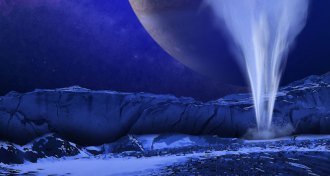 Astronomy
AstronomyEuropa’s geysers play hard-to-see
Follow-up observations of Europa failed to confirm the existence of geysers venting the Jupiter moon’s hidden ocean into space.
By Andrew Grant -
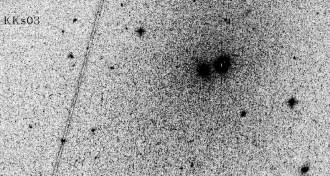 Astronomy
AstronomyHubble telescope spots our galaxy’s newest neighbor
The Milky Way galaxy has a new neighbor, Hubble images show.
-
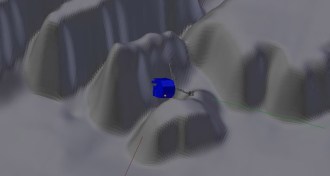 Planetary Science
Planetary ScienceGrazing crater rim may have saved comet lander
Bumping off the rim of a crater probably saved the robotic comet Philae from a cold, dark death, a new analysis of images suggests.
-
 Astronomy
AstronomyRevived Kepler telescope finds first exoplanet
NASA’s Kepler space telescope finds its first planet — a possible super-Earth — since getting a second chance at life.